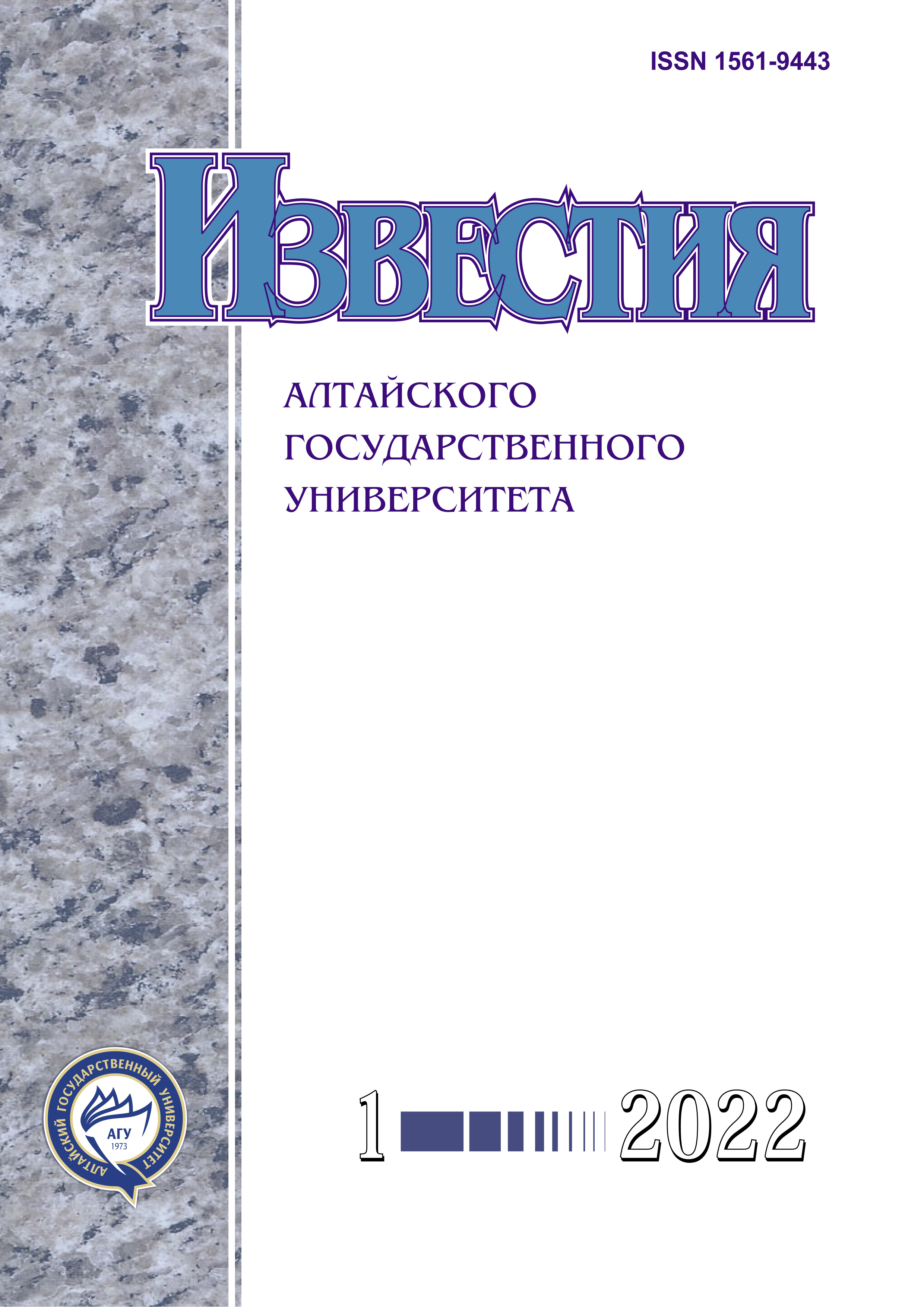Construction and Visualization of the Ontology of the Educational Course for the Digital Information Space of the University
УДК 004.9:378
Abstract
Despite the significant volume of educational courses published on the university's information portals, there is no full or partial mechanism for obtaining the necessary information in one place and an accessible form. Each course is a separate resource, without the ability to build logical connections (navigational transitions) between adjacent or sequential courses and courses of the same thematic cluster or subject area. The lack of systematization of e-courses does not allow realizing a full-fledged contextual search and navigation between related resources.
Within the framework of this study, the problem of constructing and presenting an ontology of an electronic course is considered. Applied solutions to this problem will significantly increase the constructiveness of existing services for working with training courses and provide a new set of opportunities based on the systematization of knowledge. As a structure of knowledge representation, it is proposed to use a structured set of concepts (terms) that describe the theoretical and practical aspects of the electronic course. Such a domain ontology is represented as a semantic network, which can be visualized by a specialized software tool or using a graphical library, for example, d3 for the JavaScript language.
Downloads
Metrics
References
Бездушный А.Н., Гаврилова Э.А., Серебряков В.А., Шкотин А.В. Место онтологий в единой интегрированной системе РАН // Современные технологии в информационном обеспечении науки : сб. научн. тр. / под ред. Н.Е. Каленова. Научный мир. 2003. URL: http://www.ras.ru/ ph/0006/3q3T33RC.html (дата обращения: 12.12.2021).
Gao Shu, Omer F. Rana, Nick J. Avis, Chen Dingfang. Ontology based semantic matchmaking approach // Advances in Engineering Software. 2007. № 38.
Смирнов А.В., Пашкин М.П., Шилов Н.Г., Левашова Т.В. Онтологии в системах искусственного интеллекта: способы построения и организации ; ч. 1 // Новости искусственного интеллекта. 2002. № 1 (49).
Павлов С.В., Ефремова О.А. Онтологическая модель интеграции разнородных по структуре и тематике пространственных баз данных в единую региональную базу данных // Онтология проектирования. 2017. Т. 7. № 3 (25). DOI: 10.18287/2223-9537-2017-7-3-323-333.
Ужва А.Ю. Онтологические модели представления знаний для адаптивного поиска образовательных ресурсов алгоритмом рассуждений по прецедентам // Фундаментальные исследования. 2013. № 4-3.
Долятовский В. А., Гамалей Я.В. Онтологический подход к процессам и системам обучения и образования // Образовательные технологии. 2018. № 3.
Гаврилова Т.А. Онтологический подход к управлению знаниями при разработке корпоративных информационных систем // Новости искусственного интеллекта. 2003. № 2.
Лутошкина Н.В., Мурашова Л.М. Систематизация мультимедийного контента электронного курса на основе онтологии предметной области // Современные проблемы науки и образования. 2013. № 6. URL: https://science-education.ru/ru/article/view?id=11480 (дата обращения: 12.12.2021).
Новиков Ф.А. Искусственный интеллект: представление знаний и методы поиска решений : учеб. пособие. СПб., 2010.
Gruber T.R. A Translation Approach to Portable Ontology Specifications // Knowledge Acquisition. 1993. Vol. 5 (2).
Авдошин С.М., Шатилов М.П. Онтологический инжиниринг // Бизнес-информатика. 2007. № 2.
Норенков И.П. Онтологические методы синтеза электронных учебных пособий // Открытое образование. 2010. № 6.
Куликова Л.Л., Юрин П.В. Использование онтологии предметной области для проектирования и управления компетенциями в вузе // Вестник ИрГТУ 2011. № 11 (58).
Шполянская И.Ю., Середкина Т.А. Технологии Semantic Web в организации поддержки онлайн обучения // Системный анализ в проектировании и управлении. 2020. № 3. Doi:10.18720/SPBPU/2/id20-231.
Антонов В.В., Куликов Г.Г., Кромина Л.А., Родионова Л.Е., Фахруллина А.Р, Харисова З.И. Концепция программно-аналитического комплекса образовательного процесса на основе онтологии и искусственных нейронных сетей // Онтология проектирования. 2021. № 3 (41).
Гаврилова Т.А., Хорошевский В.Ф. Базы знаний интеллектуальных систем. СПб., 2001.
Открытая коллекция примеров визуализации данных Observable. URL: https://observablehq.com/@39bbe44713bf1f81 (дата обращения: 12.12.2021).
Copyright (c) 2022 Ольга Николаевна Половикова, Владислав Владиславович Ширяев, Дмитрий Сергеевич Козлов

This work is licensed under a Creative Commons Attribution 4.0 International License.
Izvestiya of Altai State University is a golden publisher, as we allow self-archiving, but most importantly we are fully transparent about your rights.
Authors may present and discuss their findings ahead of publication: at biological or scientific conferences, on preprint servers, in public databases, and in blogs, wikis, tweets, and other informal communication channels.
Izvestiya of Altai State University allows authors to deposit manuscripts (currently under review or those for intended submission to Izvestiya of Altai State University) in non-commercial, pre-print servers such as ArXiv.
Authors who publish with this journal agree to the following terms:
- Authors retain copyright and grant the journal right of first publication with the work simultaneously licensed under a Creative Commons Attribution License (CC BY 4.0) that allows others to share the work with an acknowledgement of the work's authorship and initial publication in this journal.
- Authors are able to enter into separate, additional contractual arrangements for the non-exclusive distribution of the journal's published version of the work (e.g., post it to an institutional repository or publish it in a book), with an acknowledgement of its initial publication in this journal.
- Authors are permitted and encouraged to post their work online (e.g., in institutional repositories or on their website) prior to and during the submission process, as it can lead to productive exchanges, as well as earlier and greater citation of published work (See The Effect of Open Access).








